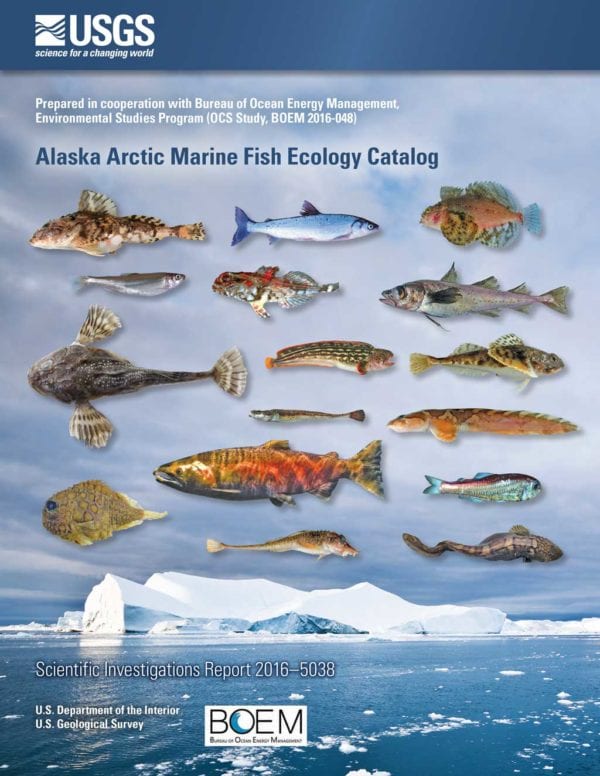An updated marine fish inventory included in a new federal survey of the Arctic food web includes 20 newly confirmed species among the 109 species in the Chukchi and Beaufort seas.
The Alaska Arctic Marine Fish Ecology Catalog: Beaufort and Chukchi Seas, was released on Aug. 8 by the U.S. Geological Survey and the Bureau of Ocean Energy Management. It is a synthesis and compendium of biological information about marine fishes in the U.S. Arctic focusing on new information collected since publication of “Fishes of Alaska” in 2002.
Arctic cod is the most abundant marine fish in the region and an important link in marine food webs. Priority species, including salmon, whitefish and char, are those used in subsistence activities or are important to the functioning of marine ecosystems.
According to Lyman Thorsteinson, an emeritus scientist with USGS, it would be difficult to assert that newly identified species over the last decade are due to climate changes.
Thorsteinson did say that physical and biological qualities of hospitable marine habitats are developing in warming Arctic waters, and with respect of human developments, previously ice-covered areas are opening and becoming accessible to new exploration.
But he added that this is a frontier area where sampling has been largely located in the very near shore with only very recent systematic surveys conducted far offshore, and that long-term monitoring data is almost non-existent.
What is known about species presence and zoogeography are derived from surveys which have often been conducted for environmental assessment of offshore oil and gas exploration and development, and the region is devoid of commercial fisheries and the present lack of long-term data, he said.
New information included in the report came from recent research supported by the National Oceanic and Atmospheric Administration and BOEM, with new confirmations coming from field work and museum studies conducted in the Chukchi and Beaufort seas since around 2002, Thorsteinson said.
Pacific influences on physical and biological oceanography in this region are great, and it is likely that certain Bering Sea species associated with different waters masses transported into the region are shifting in their distributions to the north, he said. Changes in species composition in this region may be due to warming effects, he said.















